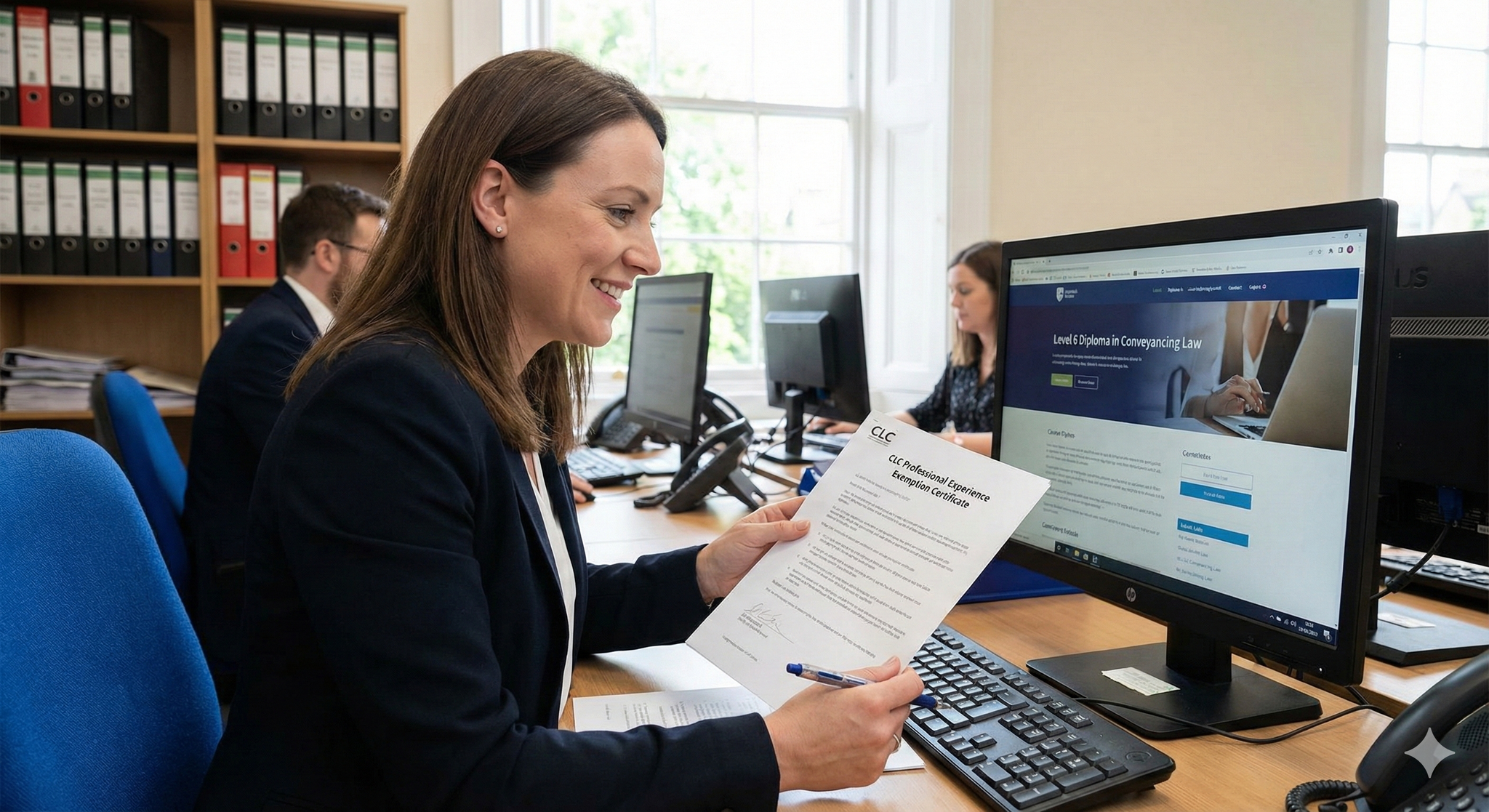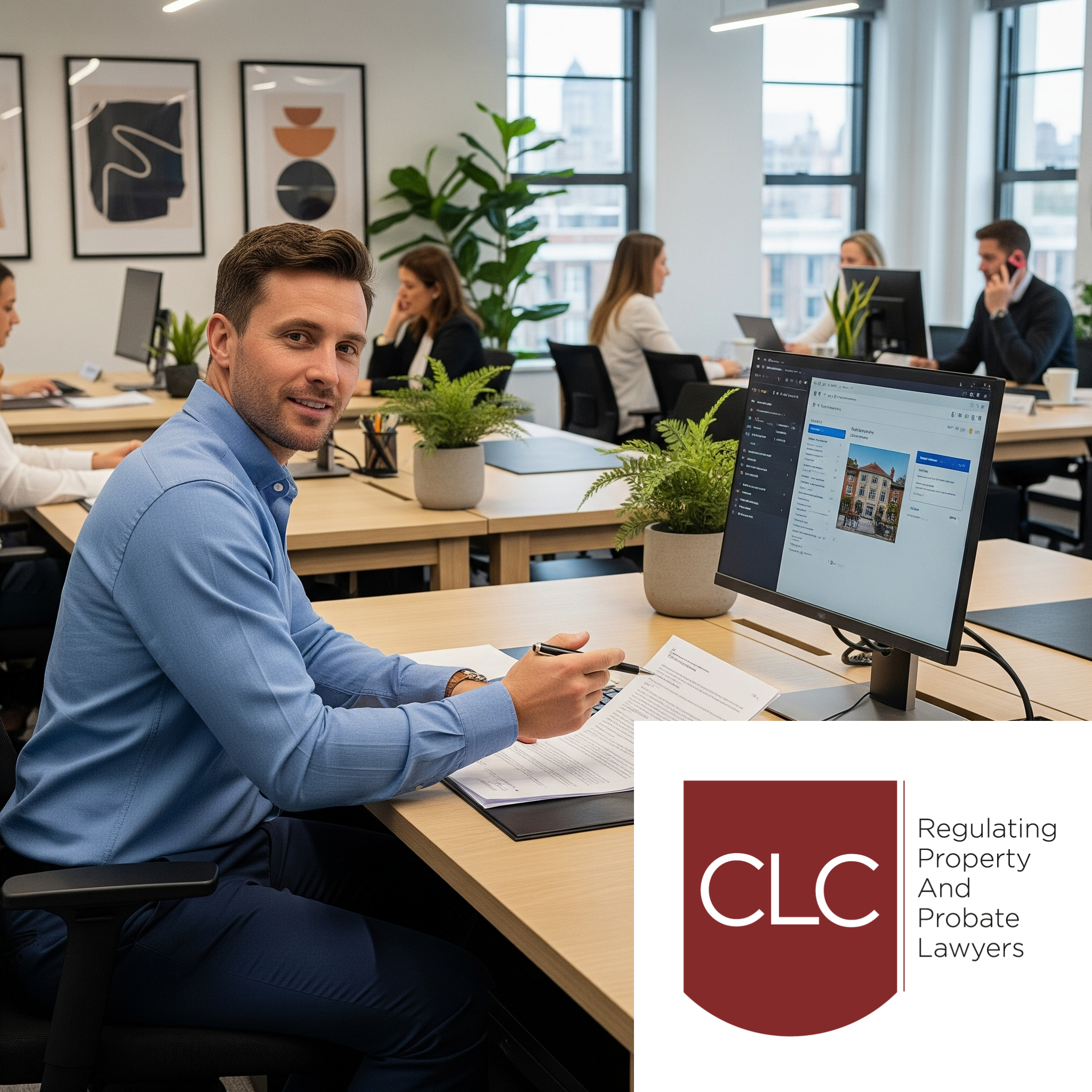Conveyancing Apprenticeship vs. Solicitor: Which Legal Career Path is Right for You?
Published: 16 August 2025
Considering a career in law? The traditional route to becoming a solicitor – typically involving a law degree followed by further vocational study and training – is well-known.
However, for those passionate about property and looking for a direct, practical, and debt-free entry into the legal profession, a Conveyancing Apprenticeship presents a compelling alternative.
But how do these two distinct paths compare? Let's break it down.

The Conveyancing Apprenticeship
What is it?
A Conveyancing Apprenticeship is a hands-on training programme that combines paid employment with structured learning.
You'll work within a law firm or specialist conveyancing practice, gaining real-world experience while simultaneously studying towards a recognised qualification, such as a Licensed Conveyancer (Level 4 or Level 6).
Key Advantages:
- Direct Route: This is perhaps its biggest appeal. You skip the traditional university degree requirement and jump straight into a legal role.
- Debt-Free Education: As an apprentice, you earn a salary while you learn, and your training fees are covered by your employer and government funding. No student loans for your legal education!
- Specialised Expertise: You become a specialist in property law from day one. You'll handle the legal aspects of buying, selling, and remortgaging properties, becoming an expert in a high-demand field.
- Practical Focus: The qualification is highly practical. You learn by doing, applying legal principles to actual client cases under the guidance of experienced professionals.
- Speed to Specialisation: While a Level 6 Licensed Conveyancer apprenticeship can take around 36 months, you emerge fully qualified in a specialised area, with significant on-the-job experience.
Scope of Practice:
A Licensed Conveyancer holds the same legal authority as a solicitor to handle property transactions and probate matters.
If your passion lies specifically in helping people navigate the complexities of property ownership, this path allows you to become an expert and fully qualified legal professional in that niche.
A Backdoor to Becoming a Solicitor?
One of the most exciting aspects of the Conveyancing Apprenticeship route is that it doesn't close any doors. The Level 6 Licensed Conveyancer qualification is classified as a "degree equivalent."
This is a game-changer for career progression.
Under the new Solicitors Qualifying Examination (SQE) route, a degree or equivalent qualification is a prerequisite for sitting the SQE exams. This means that once you have successfully completed your Level 6 Diploma and become a Licensed Conveyancer, you are then fully eligible to sit the SQE assessments and qualify as a solicitor at a later date if you choose.
This offers a powerful, alternative path into the solicitor profession:
- Gain Employment: It's often easier to secure a role as a trainee conveyancer than a highly competitive training contract or solicitor apprenticeship. Firms have a consistent demand for skilled conveyancers.
- Qualify and Earn: You spend the first few years building a rewarding, specialised career while earning a full-time salary.
- Broaden Your Horizons: Once you have gained a solid foundation and a specialised qualification, you can then decide if you want to broaden your skills and become a solicitor. You can take the SQE exams part-time alongside your job, with your experience as a Licensed Conveyancer counting towards the required Qualifying Work Experience (QWE).
Essentially, a conveyancing apprenticeship can be seen not just as a distinct career path, but as a strategic, low-risk, and practical alternative route to becoming a solicitor.
It allows you to enter the legal field, earn a good living, and gain a valuable qualification, all while keeping your options open for the future.
Licensed Conveyancer Apprenticeship
Becoming a Solicitor: A Broader, Longer Journey
What is it?
Becoming a solicitor typically involves a more general legal education, followed by specific qualifications and practical training. The route has evolved, but generally includes:
- A Law Degree (LLB) or a non-law degree followed by a PGDL (Postgraduate Diploma in Law).
- The Solicitors Qualifying Examination (SQE), which is now the new centralised assessment for all aspiring solicitors.
- Qualifying Work Experience (QWE), typically 2 years.
- Alternatively, a Solicitor Apprenticeship offers a debt-free route, but it's a longer commitment (often 5-6 years) that covers a broader legal curriculum.
Key Differences & Considerations:
- Broader Legal Scope: Solicitors are qualified to advise on a much wider range of legal areas beyond property, such as family law, criminal law, corporate law, litigation, and more. This offers greater versatility if you're unsure about your specialisation.
- Longer Path: The traditional solicitor route, including university and vocational training, can take 6-7 years. A solicitor apprenticeship, while debt-free, is also a significant time commitment, typically 5-6 years.
- Academic Rigour: The path often involves more academic study before significant practical application, particularly for university graduates.
- Wider Career Options: A solicitor qualification opens doors to various legal roles, including in-house counsel, public sector law, and international law, as well as private practice across numerous specialisms.
Which Path is Right for You?
The choice between a Conveyancing Apprenticeship and pursuing a solicitor qualification boils down to your career aspirations and learning style:
- Choose a Conveyancing Apprenticeship if:
- You have a clear passion for property and conveyancing.
- You prefer learning by doing and want to earn while you train.
- You're looking for a direct, debt-free, and practical route into a highly respected legal specialism.
- You want to become a fully qualified legal professional in a shorter timeframe, focusing specifically on property.
- Choose to become a Solicitor if:
- You desire a broader legal qualification with the option to specialise in many different areas of law.
- You're prepared for a longer academic and professional journey.
- ou're seeking the widest possible range of career opportunities within the legal sector.
Both routes lead to rewarding and respected careers in the legal field. The "best" path isn't universal; it's the one that aligns most closely with your personal goals, interests, and how you prefer to learn and develop your career.
Legal Technician or Licensed Conveyancer Apprenticeship?
Frequently Asked Questions
Practical Experience CheckerMore related posts

Funding: Your Complete Guide to Grants, Loans & Sponsorship

Conveyancing Qualification: How Long Does it Take?











